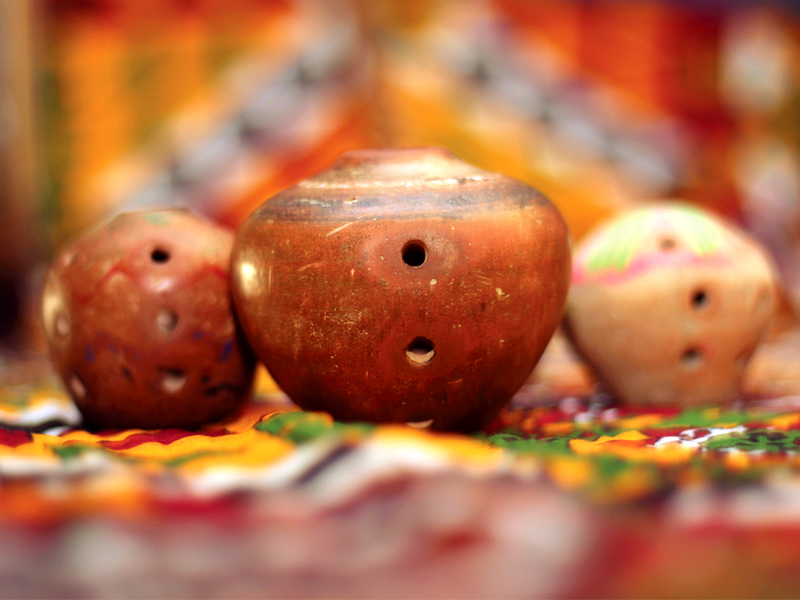
JAMSHORO:
It is yet another bright and windy morning in Jamshoro, where Saif Samejo, vocalist of well-known band The Sketches, is gearing up to reveal his dream project. We drive into a narrow street of Qasimabad, Hyderabad where rest of Samejo’s team is waiting to greet us outside what looks like a bungalow.
However, the first thing we see upon entering the house is quite unexpected: An Ajrak clad musician playing a folk tune on a danbooro, with a huge Bob Marley painting on the wall behind him.
“This is how we have fun at the Lahooti School of music” Samejo reveals his dream project to The Express Tribune. The Lahooti School of music is an extension of the Lahooti Live Sessions that Samejo and his friends started a year ago, with the intent of preserving indigenous instruments and instrumentalists.
“This school will be more like a culmination of our dreams, because Jamshoro and Hyderabad have never had a proper school dedicated to music education“ says Samejo.

The school will later be shifted to a proper location, which is currently being constructed on a far off empty plot at the junction of Jamshoro and Hyderabad.
“I wouldn’t want to call it a school; I’d rather call it an Ashram for artistes,” says Samejo, as he takes us on a visit to the school building that is under construction. “It will be a place for artistes to relax, unwind and more importantly, it will serve as a place where they can escape from the noise of the city and truly enjoy a creative atmosphere”.
Though there have been many private guitar and piano tutors in Hyderabad and Jamshoro, this is the first formal institution to be established in the locale. The school offers a thirty six hour learning module in keyboards, guitars, bass guitars and drums amongst western instruments and chung, boreendo, shehnai, danbooro, sarangi, narr, sitar, flute and dholak/tabla, along with other percussion instruments closer to home. Later on the students who show interest in the field of music production will also be provided with studio facilities to harness their skills, and the faculty is already in talks with some Ustaads who could help with lessons in vocal training.
“You’ll be surprised to know that music has had a sudden revival in Hyderabad in the past 3 to 4 years, and as a result of that many bands have popped up,” Nomi Ali, a Hyderabad based music producer who is looking over the curriculum of the school tells The Express Tribune. “And this is the charisma for music that we are banking on” he adds.
Ali believes that the central idea remains to preserve and promote traditional music and musicians, by using the charisma of popular instruments like guitar as a magnet for music lovers.
“The only way of attracting youngsters towards formal training in folk instruments is to give them some sort of an incentive, and we are providing that,” elaborates Ali. “Let’s say there is a boy who wants to learn to play the guitar; we’ll tell him that if he also learns to play the boreendo or any other folk instrument, then we will produce a free of cost song for him by combining the two instruments that he’ll play”.
Fakeer Zulfikar Loond, the folk musician who was also featured in Coke Studio 6, is one of the main teachers, as he’ll be giving lessons in boreendo, chung and danbooro. This venture has come as a welcome respite for him, and he is very excited.

“Before this, I was trying to make ends meet in my village near Badin, and now I am being paid for what I enjoy the most. What else would a folk musician want in such times,” said Loond.
Due to the decreasing availability of certain folk instruments and instrumentalists, the teachers also plan to make a gallery of indigenous instruments. They have links with the people who make these in rural Sindh and Balochistan, and also international sellers in Nepal where equivalents of many of our own folk instruments like the chung are available.
The entire project is being funded by Samejo himself, who apart from belonging to a well-established and affluent family in Jamshoro, is also the director Marketing Daily Kaawish. He will not be bothered if the school, the negligible fee of which is not decided yet, fails to bring in any revenue, as he is doing it purely for the sake of culture and enjoyment.
“I used to spend a lot of money on international travelling but now I’ll be able to find that enjoyment in this hub of artistes that I am creating at home. So it’s double the enjoyment with half the investment,” says Samejo.
Admissions to the Lahooti School of Music begin of March 10, 2014.
Published in The Express Tribune, March 9th, 2014.
Like Life & Style on Facebook, follow @ETLifeandStyle on Twitter for the latest in fashion, gossip and entertainment.
COMMENTS (1)
Comments are moderated and generally will be posted if they are on-topic and not abusive.
For more information, please see our Comments FAQ
















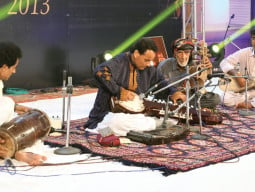

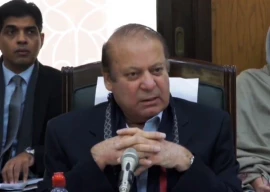
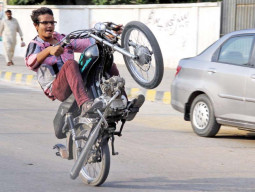

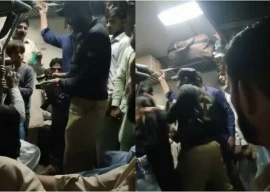
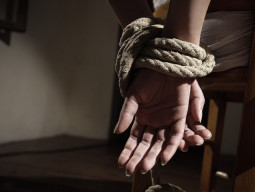






















great work by saif samejo , we hope he wil continue to work with same enthusiasm and passion , you are really a great asset to sindh .